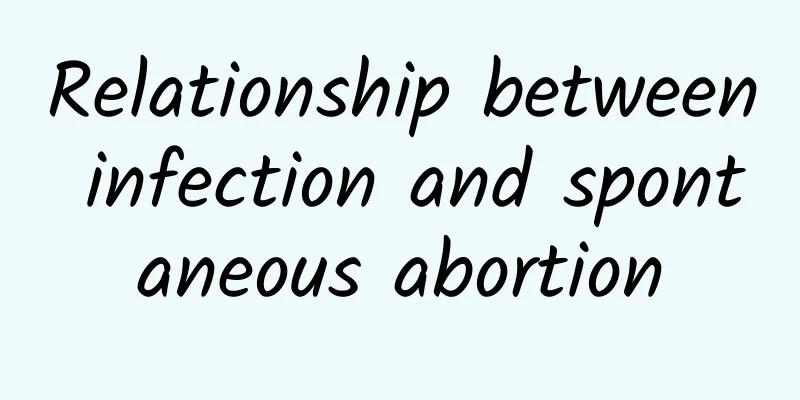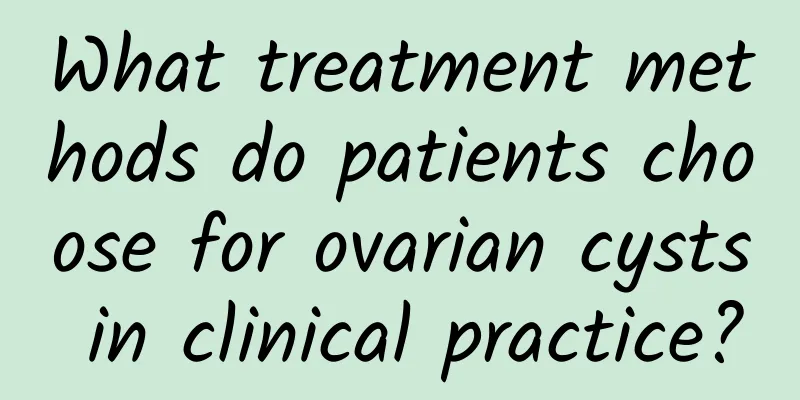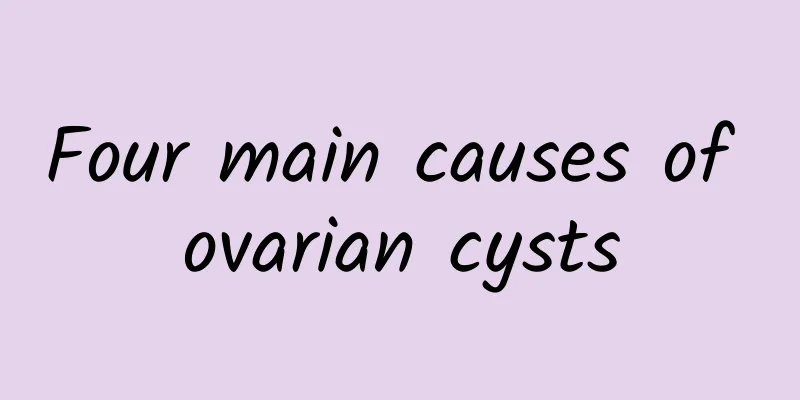Relationship between infection and spontaneous abortion

|
In our lives, many pregnant women will experience spontaneous abortion during pregnancy. There are many reasons for spontaneous abortion. Perhaps you don’t particularly understand the impact of infection on spontaneous abortion. Next, the editor will give you a detailed introduction to the relationship between infection and spontaneous abortion. Pregnant women are generally susceptible to a variety of pathogens. In recent years, the infection of female reproductive tract CT and UU has been increasing year by year, so the pathogenicity of CT and UU has also attracted much attention. However, there is no consensus among scholars on whether there is a correlation between CT and UU and miscarriage. Some scholars have conducted microbiological tests on the embryonic tissues of spontaneous abortion and artificial abortion, and believe that chlamydia or mycoplasma infection is related to the occurrence of spontaneous abortion; some studies believe that from the statistical analysis of the results, the incidence of adverse pregnancy in women with chlamydia or mycoplasma infection is not higher than that of uninfected women, so they have no trend relationship with the occurrence of spontaneous abortion. By comparing the infection of CT and UU in women with spontaneous abortion and healthy pregnant women, we found that the infection rate of CT and UU in women with spontaneous abortion was significantly increased, and the difference between the two groups was significant, suggesting that CT and UU infection have a certain relationship with the occurrence of spontaneous abortion. Although the mechanism of chlamydia and mycoplasma inducing inflammation and destroying tissues is not very clear at present. However, studies have shown that after chlamydia and mycoplasma infect the reproductive tract, the endometrium undergoes a chronic inflammatory response due to infiltration of lymphocytes and macrophages. The activity of the immune system and the production of anti-pathogen cytokines can damage the growing embryo or interfere with embryo implantation. It may also interfere with the regulatory mechanism of the maternal immune system to protect the embryo and cause miscarriage. Try to eat well, sleep well, and pay attention to increasing nutrition to enhance the body's resistance to disease and promote the early repair of damaged organs. After abortion, you should eat more protein-rich foods such as fish, meat, eggs, and bean products, as well as fresh vegetables rich in vitamins to speed up your body's recovery. You should take food supplements immediately; you should not eat raw, cold, or irritating foods. If you have the conditions, you can refer to the normal postpartum diet. In addition, you should follow the taboos after childbirth in your life, do not take a bath, do not drink cold drinks, keep your clothes warm, and avoid catching a cold. |
<<: Study on the relationship between infection and spontaneous abortion
>>: Study on Traditional Chinese Medicine for Bleeding after Medical Abortion
Recommend
Be careful of carrot legs! Learn how to wear high heels backwards
This is the secret technique that models use to p...
What foods are good for the body when you have Bartholin's glanditis?
Bartholinitis is a disease caused by bacterial in...
Introduction to the three main methods of ovarian cyst examination
Clinically, ovarian cysts need to be diagnosed th...
Introduction to several effective methods for treating candidal vaginitis
For female friends, it is necessary to treat cand...
How big is the ovarian cyst for surgical treatment?
How big should an ovarian cyst be for surgery? Th...
What are the possible causes of dysmenorrhea in women?
Nowadays, women often experience dysmenorrhea dur...
The main harm of dysmenorrhea
Women will experience dysmenorrhea during their m...
What are the early signs of ectopic pregnancy?
There are certain differences between ectopic pre...
What to do if you have irregular menstruation after cesarean section? 8 things to pay attention to when you have irregular menstruation after cesarean section
In the gynecological clinic, the uterine wall sca...
What are the bases for the diagnosis of ectopic pregnancy?
What is the basis for the diagnosis of ectopic pr...
Can I do HIFU ablation if my menstruation has not come?
Many women may feel troubled and worried when the...
Are cystic uterine fibroids benign or malignant?
Are cystic changes in uterine fibroids benign or ...
Why do women have uterine fibroids? Is uterine fibroids related to sex life?
Why do women have uterine fibroids? Uterine fibro...
What is the most serious consequence of pelvic inflammatory disease? Eventually secondary infertility
If women do not pay attention to their health, it...
Can patients with ovulation bleeding get pregnant?
Can patients with ovulation bleeding get pregnant...









